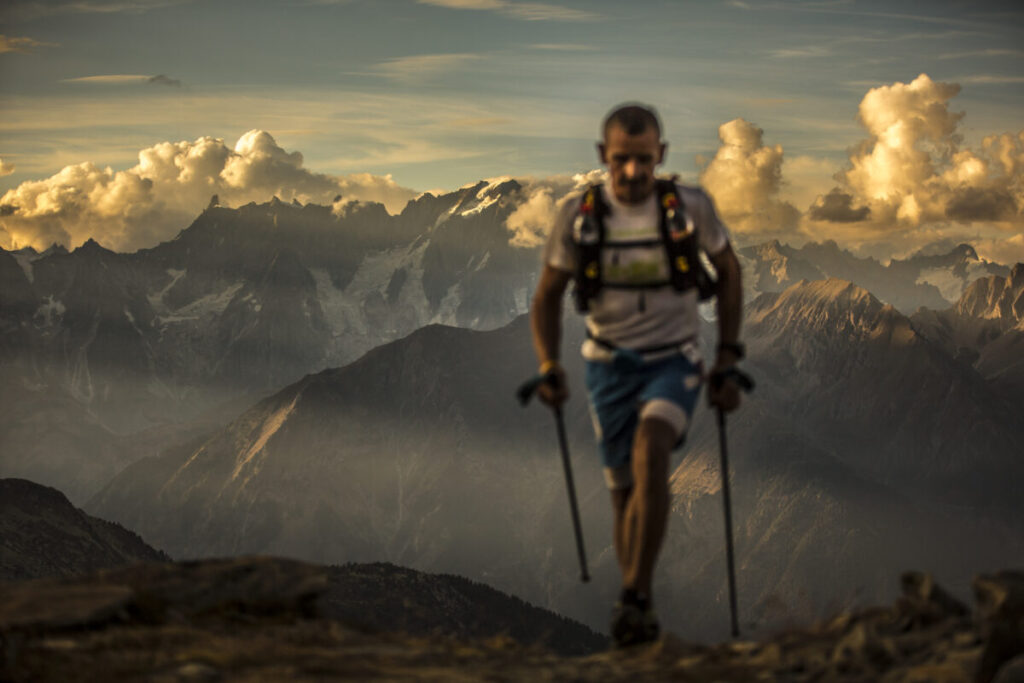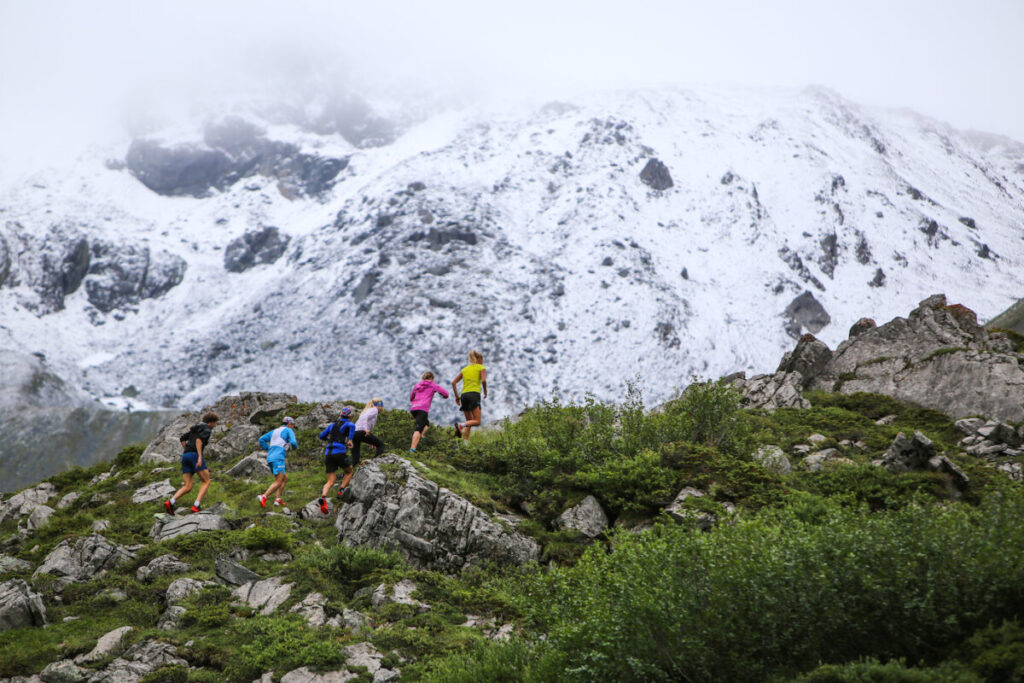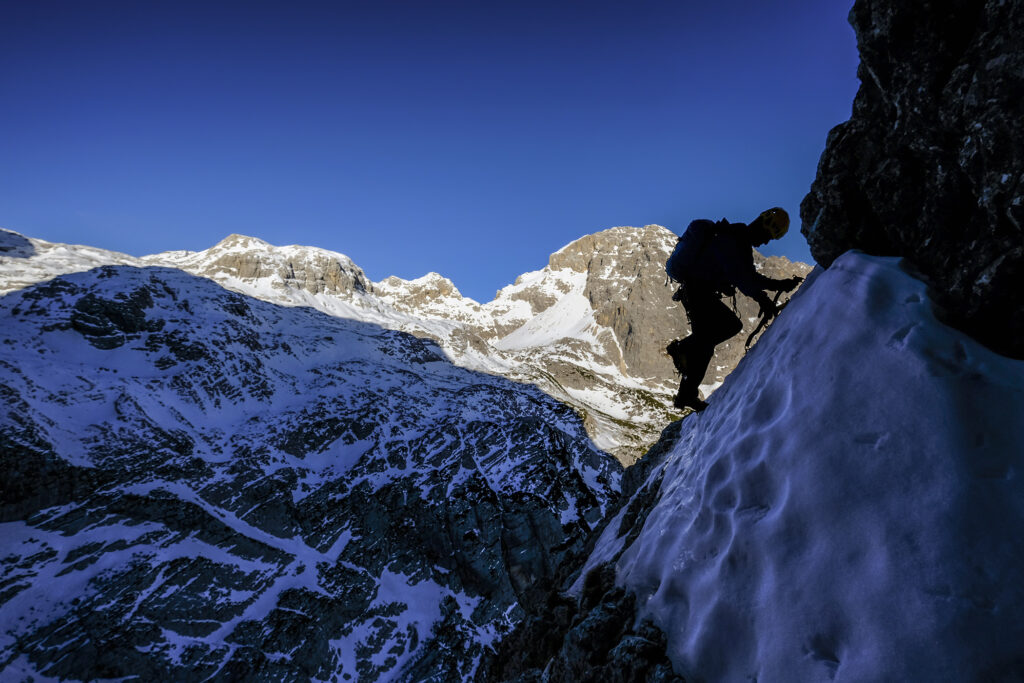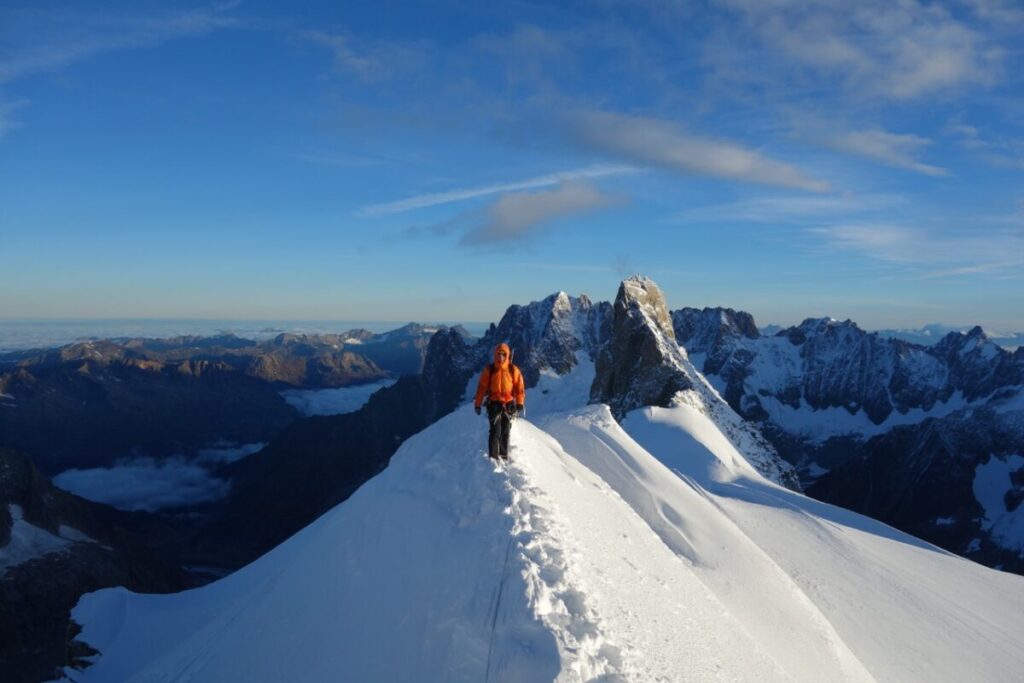Uphill Athlete has always aimed to apply traditional endurance training methods to non-traditional sports. We have produced a comprehensive series of educational materials, starting with training for mountaineering. Throughout all mountain sports, there exist fundamental pillars of endurance training. Our objective is to guide you through the process of training for a mountaineering goal, providing actionable steps for you to incorporate into your own training routine.
Establishing a well-developed aerobic base is a fundamental requirement for every mountain athlete. Additionally, integrating periodized and progressive strength training into your regimen plays a crucial role, and the inclusion of sport-specific muscular endurance training completes the whole package.
With this podcast series, our mission is to empower you to reach your peak performance in the mountains.
We have updated all of our mountaineering training plans to sync with all smartwatches. Each plan also comes in two flavors – HR-based and RPE-based. Designed to help you achieve your mountaineering dreams with structured, science-backed, field-tested training plans that deliver. As always, our plans are ‘buy it once, own it forever’, and all future updates are included in the original purchase price. You can check them out here.
Now, let’s dive straight into our Training for Mountaineering podcast series episodes one by one.
FUNDAMENTAL OF TRAINING FOR MOUNTAINEERING PART 1: FOUNDATIONS
This was the first in a multi-part series where we kicked off a major season of educational material on the podcast. Coaches Alyssa, Steve, and Chantelle discuss the steps of training for a mountaineering objective and give you actionable items to take with you on your training.
- Aerobic training fundamentals
- Establishing a solid foundation of aerobic fitness
- Well-structured, gradually increasing strength training regimen
- Sport-specific muscular endurance training for necessary skill development
FUNDAMENTALS OF MOUNTAINEERING PART 2: AEROBIC THRESHOLD TESTING
In this episode, Steve House, Chantelle Robitaille, and Alyssa Clark continue with the discussion of the fundamentals of mountaineering with a focus on establishing training zones.
- Explore different methods of aerobic threshold testing
- Assess test results and establish training zones
- Discuss common mistakes to avoid
- Importance of various training components for peak mountain performance
“Analyzing your data in TrainingPeaks afterward provides valuable insights. You should see the pace-to-heart rate ratio to ensure you’re in the right zone. This ratio tracks how your heart rate responds relative to your pace and should ideally remain stable for up to an hour, even as fatigue sets in. However, it’s important to note the phenomenon of cardiac drift, wherein your effort level or pace may decrease slightly while your heart rate gradually increases. Understanding this can help guide your training effectively,” says Chantelle.
“The base period is crucial for building our metabolism, setting the foundation for subsequent stages of our training journey where specificity and sharpening occur,” explains Steve.

TRAINING FOR MOUNTAINEERING: THE PSYCHOLOGY OF RISK AND FEAR
In this episode, Steve House, Alyssa Clark, and Alexa Hasman discuss the psychology of mountain sports, mainly focusing on risk-taking and fear.
- Mental preparation and overcoming fear
- Dealing with doubt and the psychology behind risk-taking
- Personal anecdotes from Steve’s professional climbing career
- Alyssa’s experiences in ultrarunning
- Alexa’s explanation of the science behind the how and why
- Tools and advice on knowing when to listen and when to push
- A mental journey to learn how to be your mental mountain best
PREHAB FOR TRAINING FOR MOUNTAINEERING
Steve House, Alyssa Clark, and Physical Therapist Pete Dickinson dive into the foundations of physical performance from a pre-habilitation perspective. They discuss:
- When to start heavier training loads
- Injury prevention strategies
- Strength assessment and when to consult a physical therapist
- Common mistakes that can result in injury

Pete offers his top 3 favorite exercises for injury prevention and helps athletes understand when it's training fatigue and when it's more serious.
“Fatigue is an important part of athletic preparation. You have to expose yourself to that so that you can adapt to it.”
BASE TRAINING: TRAINING FOR MOUNTAINEERING
In this episode, know the importance of the base period, the main principles behind base training, and the strength component. The coaches explore:
- Working around limited gym access
- Adapting workouts for flat areas
- Steve’s experience with weighted uphill climbs
- Training muscular endurance for upper and lower body
- Differentiating mountaineering plan from technical alpine plan
- Training considerations for each plan
“The base training period is where we are working to improve our work capacity and improve our resistance to fatigue. We’re looking to build our endurance through this type of lower-effort, slower-effort training, which doesn’t always feel the sexiest. But it’s probably the most important of all the training we do because it sets a good base for everything we need to do to prepare for mountaineering objectives,” says Chantelle.
STRENGTH TRAINING FOR MOUNTAINEERING
Veteran Uphill Athlete coach Jason Antin joins Steve and Alyssa in the podcast episode. The trio opens by discussing the role of strength in Jason, Steve, and Alyssa’s athletic careers and the purpose of strength training in the mountains. You will learn:
- Defining strength, strength training, and its role in efficient and safe movement in mountain objectives
- Breakdown of the three periods of strength training: transition, max strength, and muscular endurance
- Importance of single-leg strength for mountain athletes
- Exploring variations of muscular endurance for individuals in mountain towns to New York City
“There's a significant impact of accumulated fitness. I think that it's very profound when it comes to strength," says coach Jason.
Don’t neglect this episode like you do with strength training.
TRAINING FOR MOUNTAINEERING: CLIMBING SPECIFIC PERIOD
In this episode of Training for Mountaineering, Steve and Alyssa discuss the last training period before tapering – the climbing-specific period. This stage follows the crucial base period and serves to sharpen the skills a climber needs for a specific goal. This period can range anywhere from 2-8 weeks, depending on your level and the objective. The two biggest considerations are keeping the volume at a reasonable amount while increasing the intensity. These workouts should be hard.
They discuss:
- Navigating and planning during the climbing-specific period
- Tips for building up climbing trips and training at home
- Understanding the distribution of intensity, volume, recovery, and strength throughout the training week
- Highlighting the importance of mental preparation and confidence for goal climbs

If an athlete has a time constraint, they shouldn’t do a specialization period minimum of 12 weeks in the base period.
TRAINING FOR MOUNTAINEERING: TAPERING AND POST-MOUNTAIN BLUES
Coach Martin Zhor talks about tapering and dealing with the post-mountain blues in this episode. Tapering is a crucial part of mountaineering training to allow an athlete to recover and perform at their best. Martin speaks from his personal experiences:
- Dos and don’ts of tapering
- Advice on duration and types of workouts during the taper period
- Effect of travel, altitude, and acclimatization during taper period
- Mental and physical aspects after a big climb
- Handling post-trip letdown
Experiencing post-mountain blues is a genuine part of these mountain adventures, and it’s crucial to approach it with care. In addition, Steve, Alyssa, and Martin delve into a comprehensive discussion that adds depth to the mountaineering training podcast series.
“I would say that it’s important maybe to go back to one of those cliches, which is training is not what we do. It’s what it does to our body. We don’t get strong by training itself. It’s the rest and recovery period when the body has time to rebuild and react to all that training stress and training load,” says Martin.
CONCLUSION
Training for Mountaineering: A Podcast Series
Table of Contents

